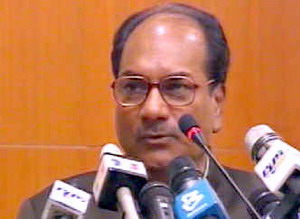Policy tweak to boost defence sector
 Poised to spend more than $30 billion (about Rs 141,000 crore) on defence equipment over the next five years, India wants to open new possibilities for the defence sector.
Poised to spend more than $30 billion (about Rs 141,000 crore) on defence equipment over the next five years, India wants to open new possibilities for the defence sector.
Defence minister A K Antony on Tuesday announced a change in policy that will enable Indian industries, with proven financial and technical capabilities, to take a shot at big-ticket military contracts that were beyond their reach until now.
The revised Defence Procurement Policy (DPP) for 2009, effective from November 1, allows request for proposals (RFPs or tenders) to be issued to Indian companies.
Speaking at a seminar on defence acquisition, organised by the Institute for Defence Studies and Analyses, Antony said indigenous firms could establish joint ventures or production arrangements with foreign vendors to meet India’s future defence requirements.
“The needs of the armed forces will be shared with capable Indian firms who in turn would submit a roadmap for development and production of a particular item over its life-cycle,” Antony said.
But these firms must have the capability to absorb technology for manufacturing weapons under a new category called “Buy and Make (Indian)”.
Under the existing rules, RFPs can be issued only to foreign vendors who then enter into partnerships with Indian firms to facilitate technology transfer. The flipside of this arrangement is that it does not promote joint ventures by major foreign manufacturers.
The revised DPP will allow production and development of weapons and platforms by the Indian industry through transfer of technology and not research and development.
Placing premium on transparency in military acquisitions, the new DPP makes it mandatory for the ministry to issue Request for Information (RFI) on its website.
Antony said the government would prepare a public version of the 15-year long term acquisition plan of the armed forces for posting on the defence ministry website. “This would help the Indian industry work out the technological requirements and build in-house capabilities to meet future defence requirements.”
The DPP-2009 will also give more power to independent monitors that scrutinise defence deals.